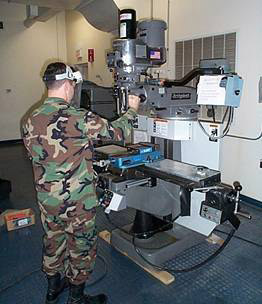 Four different young Air Force officers get tapped three or four times each year for a four-month mission to see if they can find a vulnerability, or not, for a given space system. They employ open source information available over the Internet, at a public library, or even through a telephone call. The taskings are part of the Space Countermeasures Hands On Program, known as Space CHOP, formed in 1999 and run by one Air Force civilian engineer—John Holbrook—and two contractor consultants at Kirtland AFB, N.M. The participants usually have engineering or physical sciences backgrounds but no specific space system experience. Space CHOP, says Holbrook, is the only government group using a non-expert team to simulate open source terrorism. Its purpose is not to “replace traditional vulnerability analysis,” he asserts, but to “complement it.”
Four different young Air Force officers get tapped three or four times each year for a four-month mission to see if they can find a vulnerability, or not, for a given space system. They employ open source information available over the Internet, at a public library, or even through a telephone call. The taskings are part of the Space Countermeasures Hands On Program, known as Space CHOP, formed in 1999 and run by one Air Force civilian engineer—John Holbrook—and two contractor consultants at Kirtland AFB, N.M. The participants usually have engineering or physical sciences backgrounds but no specific space system experience. Space CHOP, says Holbrook, is the only government group using a non-expert team to simulate open source terrorism. Its purpose is not to “replace traditional vulnerability analysis,” he asserts, but to “complement it.”
The U.S. military is maintaining a beefed-up presence in the Middle East, including fighters and air defense assets, following the U.S. strikes on Iranian nuclear facilities June 22 and subsequent retaliation by the Iranians against Al Udeid Air Base in Qatar.
